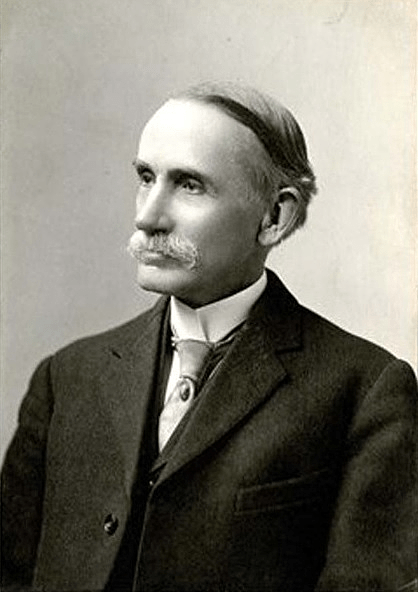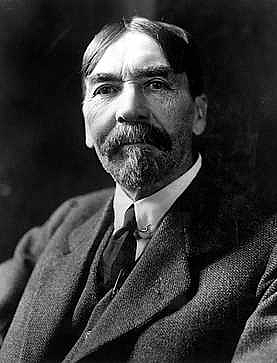
John Bates Clark
John Bates Clark (1847-1938) played an important role in the development of marginal productivity by applying the Ricardian theory of rent to labor and capital. Among his works were The Philosophy of Wealth (1886), The Distribution of Wealth (1899) and Essentials of Economic Theory (1907). His son, John Maurice Clark, also became a noted economist. Clark was educated at Amherst College and at the University of Heidelberg in Germany. He taught at Carleton from 1875 to 1881, and then moved on to teach at Smith College, Amherst, Johns Hopkins, and Columbia. His favorite pupil at Carleton was Thorstein Veblen.
Thorstein Veblen

Thorstein Veblen (1857-1929) was the founder of the “institutionalist” school of economics and is Carleton’s most famous alumnus. Veblen’s parents were Norwegian immigrants who raised a large family on a farm near Nerstrand, Minnesota. At Carleton, Veblen was a bright but rebellious student. After graduating in 1880, he went on to earn a Ph.D. in philosophy at Yale. Unable at first to find a teaching position, Veblen returned to the family farm where he spent most of his time reading. He eventually obtained teaching posts at the University of Chicago, Stanford, and the University of Missouri. Although his pedagogy received mixed reviews and his career was hampered by rumors of marital infidelity, his work left a lasting mark on economics. His most famous book, The Theory of the Leisure Class (1899) is still in print and widely read. It is both a brilliant work of theory and a biting satire which can be appreciated as much for its witty use of language as its theoretical originality. Among Veblen’s other works are The Theory of the Business Enterprise (1904) and The Instinct of Workmanship (1914).